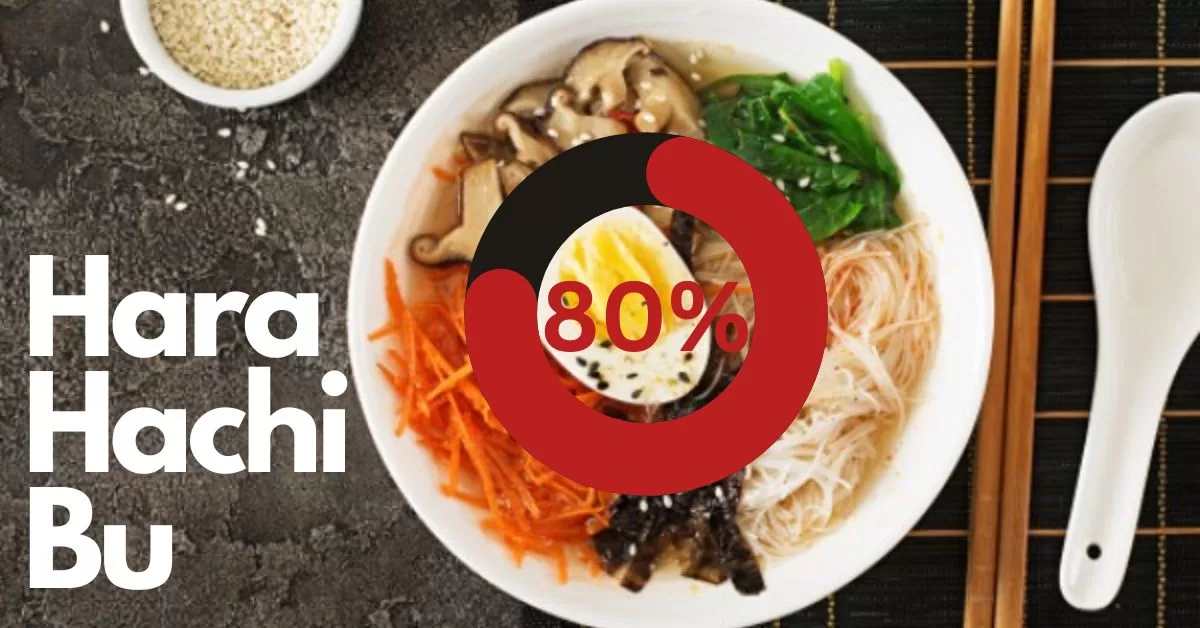From intermittent fasting to paleo diets, everyone seems to be looking for the golden ticket to weight loss and longevity. Well, look no further than Okinawa, Japan, a place renowned for its centenarians and high life expectancy. One of the core principles followed by Okinawans for generations is the eating practice called Hara Hachi Bu, a Confucian teaching instructing people to eat until they are 80% full.
So, why should you swap your current eating habits for Hara Hachi Bu? Let’s dive into three compelling reasons.
1. Bid Adieu to Calorie Counting: The Hara Hachi Bu Way
In the U.S., many focus on counting calories to manage their weight, but this method can be tedious. The average American man consumes over 2,500 calories per day, often peaking in his 40s.
According to the Mayo Clinic Calorie Calculator, an average 40-year-old woman only needs 1,500 to 1,700 calories per day to maintain a healthy weight. Hara Hachi Bu, however, offers an intuitive way to eat less without the mental load of arithmetic.
By stopping at 80% fullness, you naturally limit your caloric intake without actively counting. It bridges the gap between feeling “I’m full” and “I’m no longer hungry,” which is often a caloric chasm. This practice aligns well with mindful eating, allowing you to tune into your body’s needs rather than relying solely on external measures like calorie counts or portion sizes.
2. A Life Not Just Long, But Well-Lived
Okinawans don’t just live longer; they live better. Adopting Hara Hachi Bu is correlated with a plethora of health benefits including lower rates of cardiovascular disease, cancer, and mental health issues like depression. While correlation doesn’t imply causation, these patterns are hard to ignore.
By eating until you’re 80% full, you also avoid the pitfalls of overeating such as post-meal fatigue, acid reflux, and digestive problems. Studies have shown that overeating can speed up the aging process, both mentally and physically. So adopting this practice is not just a ticket to longevity but potentially a higher quality of life too.
3. The Art of Mindful Eating
Adhering to Hara Hachi Bu is more than a dietary guideline; it’s a form of mindfulness. The practice encourages you to slow down, chew your food thoroughly, and be attuned to the signals your body is sending. This heightened awareness allows you to fully engage with the act of eating, transforming it from a rushed necessity to a pleasurable experience. It encourages you to savor every bite, explore different textures and flavors, and appreciate the culinary craftsmanship that went into preparing your meal.
Hara Hachi Bu in Okinawa
The wisdom of Hara Hachi Bu has stood the test of time in Okinawa. With its focus on intuitive eating, longevity, and mindfulness, it’s a practice that can easily be integrated into any lifestyle. Maybe it’s time to bring a little bit of Okinawa into your life. So, the next time you sit down for a meal, consider putting down your fork when you’re 80% full. Your body, mind, and future self will thank you.

